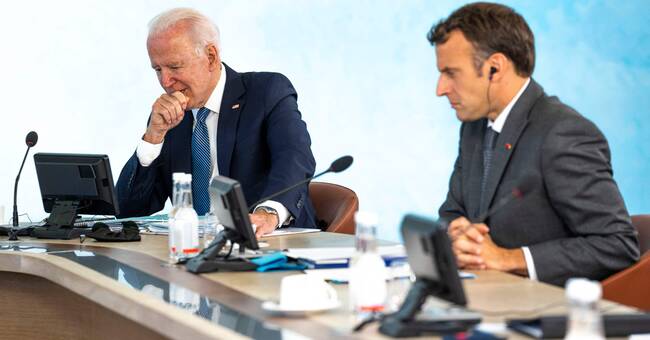China was in focus for large parts of the meeting and the member states - the United States, France, Italy, Japan, the United Kingdom, Canada and Germany - now want to show that they are a better ally of poor countries compared to the Chinese regime.
According to the Prime Minister of the United Kingdom Boris Johnson, the focus now is on helping developing countries with the help of green and sustainable growth.
- This is not about forcing our values on the rest of the world.
What we as G7 must do is show the benefits of democracy, freedom and human rights for the rest of the world, says Boris Johnson to a press contingent with journalists after the meeting ended, reports AP.
Common front against China
The wording on competition with China, which was included in the final declaration, focuses on the member states doing something together to counteract things that "undermine a fair and transparent global economy".
At the same time, it is stated that there is an interest in cooperating with China regarding global challenges where it is possible to find a consensus.
However, the tone of the final declaration is milder compared to what the United States has communicated on the issue of China, but President Joe Biden says he is satisfied.
The countries have also agreed to donate one billion vaccine doses to poor countries.
However, this is far from the 11 billion doses that the WHO believes are needed for at least 70 percent of the world's population to be vaccinated, which would mean the end of the pandemic.
World leaders have also agreed on a minimum tax of 15 percent for global corporate giants to prevent them from getting around taxes via tax havens.
Debut for US President
This weekend's G7 meeting was the first for Joe Biden since he took office in January.
- America is now back to lead the world together with nations that share our deepest rooted beliefs, Biden says at a press conference after the meeting.

